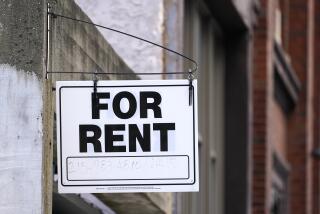Will e-book deal bite Apple?
- Share via
Defenders of Apple’s e-book deals with the major publishers portrayed the “agency” pricing model as Apple’s idea -- an initiative by Steve Jobs to help the company’s new tablet computer compete in a market dominated by Amazon’s Kindle e-book reader.
In a lawsuit filed Wednesday, however, the Justice Department argued that the agency model came from the publishers, not Apple. And therein lies the key to the government’s price-fixing complaint.
Before the iPad’s arrival, publishers sold e-books to retailers such as Amazon and Barnes & Noble on a wholesale basis, charging about half the list price of the hardback edition. The retailers then set whatever price they pleased. After it released the Kindle in 2007, Amazon started selling the most popular titles for $9.99 -- taking a loss on the book sales in the hope of promoting sales of its new $399 device. That discount put pressure on other e-book retailers to follow suit.
The contracts Apple signed with five of the six largest publishers ushered in a different pricing arrangement. Those contracts let the publishers dictate the price of the e-books sold through the iTunes store, with Apple taking a 30% commission. Notably, they also included a “most favored nation” clause that required the publishers to offer e-books to Apple’s rivals for no less than the price at iTunes. This combination of factors effectively forced other retailers to adopt the agency model just to compete with Apple.
The publishers and Apple, who also face a class-action suit in federal court in New York, have denied any collusion, and Apple has argued that the agency model allowed it to compete in the e-book market without having to lose money on e-book sales.
The Justice Department outlined an alternative explanation in court papers released Wednesday. According to the DOJ, Apple initially assumed it would buy e-books from publishers at conventional wholesale prices. “At the suggestion of two Publisher Defendants, however, Apple began to consider selling e-books under the ‘agency model,’ ” the department alleged. It added:
In January 2010, Apple sent to each Publisher Defendant substantively identical term sheets that would form the basis of the nearly identical agency agreements that each Publisher Defendant would sign with Apple (“Apple Agency Agreements”). Apple informed the publishers that it had devised these term sheets after “talking to all the publishers”....
Through frequent in-person meetings, phone calls, and electronic communications, Publisher Defendants, facilitated by Apple, assured each other of their mutual intent to reach agreement with Apple. After each round of negotiations with Apple over the terms of their agency agreements, Publisher Defendants’ CEOs immediately contacted each other to discuss strategy and verify where each stood with Apple. They also used Apple to verify their position vis-à-vis other Publisher Defendants. Penguin, for example, sought Apple’s assurance that it was “1 of 4 before signing” — an assurance that Apple provided. Two days later, Penguin and two other Publisher Defendants signed Apple Agency Agreements.
Five of the six major publishers -- Penguin (a unit of Pearson), Macmillan, Simon & Schuster, HarperCollins and Hachette -- signed “functionally identical” agency deals with Apple over a three-day period in January 2010, a few months before the iPad was unveiled, the department’s complaint contends.
The whole point of the arrangement, the complaint asserts, was to give both sides something they coveted. The publishers wanted to raise the price of their e-books, and Apple wanted to “avoid retail price competition from Amazon.”
Remember, these are just allegations. And the three publishers who agreed to settle the department’s claims against them -- Hachette, HarperCollins and Simon & Schuster -- did so without admitting to any of the accusations.
In case you missed it, The Times’ editorial board weighed in on the issue Wednesday morning before the lawsuit and settlements were announced. The board noted that defenders of the agency model for e-books say it helped loosen Amazon’s stranglehold on the markets for e-books and e-book readers. But that defense won’t be much help if the department can prove that Apple and the publishers colluded to set prices.
ALSO:
Miley Cyrus: Unintentional public health agent?
C’mon, Ozzie Guillen’s a baseball manager, not a diplomat
More to Read
A cure for the common opinion
Get thought-provoking perspectives with our weekly newsletter.
You may occasionally receive promotional content from the Los Angeles Times.







